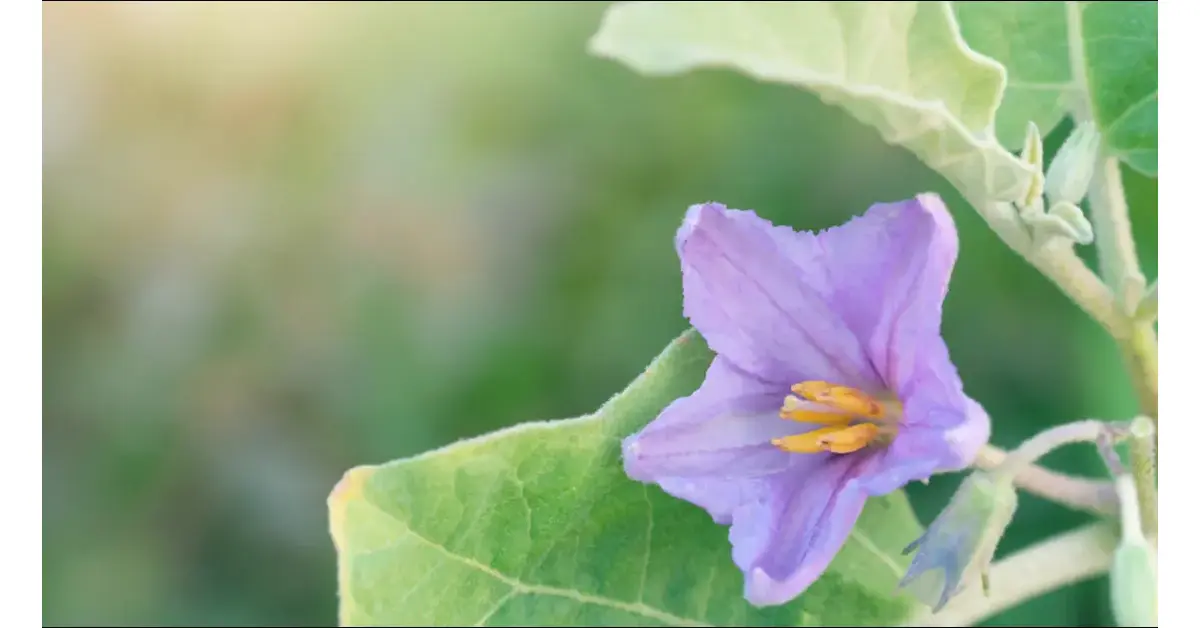Kantakari
Kantakari is the common name of the plant Solanum virginianum or Solanum xanthocarpum. It belongs to the Solanaceae family and is one of the ten roots known as Dashamula in Ayurveda. Kantakari grows in dry areas, along roadsides, and in wastelands. Despite being considered a weed in some places, it is recognized for its medicinal properties in Ayurvedic medicine.
Kantakari is a versatile herb that helps relieve pain and headaches, migraines, hair falls, bronchial asthma, skin problems, coughs, Toothache, and other diseases. Kantkari is an excellent liver tonic. Its decoction is very useful in liver swelling and infection.
It is a versatile herb that enhances traditional remedies. It’s found in Swasari Kwath, which contains Kantkari and other herbs. It is also used in the preparation of Chyavanprash. Dashmularista, an Ayurvedic tonic, contains the roots of the kantakari plant.
Botanical Classification of Kantakari (Solanum xanthocarpum)
| Kingdom | Plantae (Plants) |
| Subkingdom | Tracheobionta |
| Superdivision | Spermatophyta |
| Division | Magnoliophyta |
| Class | Magnoliopsida |
| Subclass | Asteridae |
| Order | Solanales |
| Family | Solanaceae (Nightshade family) |
| Genus | Solanum |
| (Botanical name) Species | Solanum xanthocarpum |
Solanum Xanthocarpum Common Names
Kantakari has various common names across different regions
| Sanskrit | Kantkari, Dusparsa, Ksudra, Kantakarika, Dhavani, Nidigdha, Agnidamani |
| Marathi | Dorall ringani |
| English | Wild eggplant |
| Hindi | Katai |
| Bengal | Kantkari |
| Tamil | Kandan- kattiri |
| Gujarati | Bhoyaringani |
| Telugu | Callamulaga, Nella molunga |
| Oriya | Bheji begun, Ankranti |

Solanum Xanthocarpum Uses and Benefits
1. Respiratory Health
- Cough Relief: Solanum Xanthocarpum acts as an expectorant, helping clear mucus from the respiratory tract and soothing the respiratory system, relieving coughs.
- Asthma Management: It widens the air passages, making breathing easier for those with asthma. As a bronchodilator, it expands the airways and alleviates symptoms.
- Bronchitis Support: It may help manage bronchitis symptoms, an inflammatory condition affecting the air tubes to the lungs. It soothes these symptoms and promotes overall respiratory health.
2. Digestive Wellness
- Indigestion Management: It can help you manage indigestion. Its bitter taste and carminative properties stimulate your digestive fire (Agni), leading to better digestion after meals.
- Flatulence Relief: Traditionally, It has been used to relieve flatulence (gas). It helps reduce the discomfort associated with gas and bloating.
3. Urinary Health
Diuretic Action: Solanum Xanthocarpumis considered to have diuretic properties that promote urine production, effectively flushing out toxins from the body and promoting overall urinary health.
4. Antioxidant Protection
Free Radical Scavenging: It contains compounds that can neutralize free radicals. These harmful molecules can damage cells and cause oxidative stress. By reducing oxidative stress, it supports overall cell health.
5. Anti-inflammatory Effects
Joint Health: In Ayurveda, joint pain often results from an imbalance of the Vata doshas in the body. A natural remedy for this is applying a paste of Kantakari roots powder, which helps reduce joint pain by restoring balance to the Vata doshas.
6. Wound Healing
- Regeneration of Skin Tissues: It is believed to support the regeneration of skin tissues, aiding in wound healing.
- Speeding Up Healing: It helps speed up the healing process, promoting faster recovery.
- Reducing Infection Risk: By supporting wound healing, it also reduces the risk of infection.
7. Fever Management
Febrifuge Properties: Febrifuge properties refer to the ability to reduce fever. It is believed to possess these properties, making it a natural remedy for managing fever.
Different Forms Of Kantakari Preparations
- Juice:
- Crush fresh plant parts of Kantakari to extract the juice.
- Consume the juice directly or mix it with water or honey.
- Avaleha (Herbal Jam): Kantakari Avaleha is a type of herbal jam:
- Boil 4.8 kg of Kantakari in 12.288 liters of water until it reduces to 3.072 liters.
- Mix this decoction with other herbs and ingredients until it becomes semi-solid.
- Powder (Churna):
- Easily mix Kantakari powder with warm water, honey, or ghee.
- Decoction (Kwath):
- Prepare a decoction by boiling Kantakari in water and reducing it to a concentrated form.
- Capsules or Tablets:
- Kantakari is available in pre-measured capsules or tablets for standardized dosages.
- Infusion (Tea):
- Steep Kantakari in hot water to make an herbal tea, providing a soothing and palatable option.
Recommended Dosage
- Juice:
- Adults: 10 to 20 ml (approximately 2 to 4 teaspoons) per day.
- Children: 5 to 10 ml (approximately 1 to 2 teaspoons) per day.
- Mix with an equal quantity of water.
- Powder (Churna):
- Adults: 1 to 3 grams daily, divided into two or three doses.
- Kids: 500 mg to 1 gram per day.
- Mix with honey, warm water, or ghee for consumption.
- Decoction (Kwath):
- Adults: 50 to 100 ml per day, divided into two or three doses.
- Children: 20 to 50 ml per day.
- Prepare by boiling Solanum Xanthocarpum in water and reducing it to a concentrated form.
- Capsules or Tablets:
- Typically, 1 to 2 capsules or tablets, two to three times daily.
- Kantakari Avleha (Herbal Jam):
- Adults: 5 to 10 grams per day.
- Children: 2.5 to 5 grams per day.
- Take it with warm milk or water.
- Kantakari Tea:
- Steep 1 to 2 teaspoons of dried Kantakari in hot water for 5 to 10 minutes.
- Consume up to 2 cups per day.
Solanum Xanthocarpum Side Effects
- Gastrointestinal Discomfort:
- It may cause mild gastrointestinal discomfort, such as nausea or stomach upset.
- This is more likely with higher doses.
- Allergic Reactions:
- Allergic reactions to Kantakari are rare but can include skin rashes, itching, or swelling.
- If you experience these symptoms, stop using it and seek immediate medical assistance.
- Pregnancy and Breastfeeding:
- Pregnant and breastfeeding women should seek guidance from a healthcare professional before using Kantakari.
- While it is traditionally used to support respiratory health, caution is advised during these periods.
- Liver or Kidney Disorders:
- Individuals with pre-existing liver or kidney disorders should use Kantakari with caution and under the supervision of a healthcare provider.
- Interaction with Medications:
- It may interact with certain medications.
- If you’re taking any prescription or over-the-counter drugs, consult with a healthcare provider before starting any new treatment.
- Dosage:
- Overdosing on Kantakari can lead to adverse effects.
- Adhere to the recommended dosage and consult with a healthcare provider for personalized recommendations.
- Individual Differences:
- People may react differently to Kantakari based on their health condition, age, weight, and other factors.
- What works for one person may not work for another.
Disclaimer: The information presented is solely for informational and educational purposes and should not be interpreted as medical advice. It is advised to seek advice from a certified medical or healthcare professional before relying on the content.

